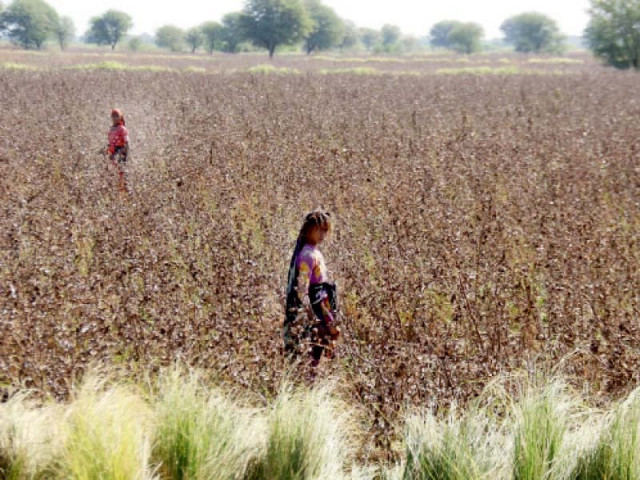Crop production cost soars
Farmers claim they paid extra Rs300b for urea in 2023 due to black marketing

Pakistan’s agriculture is witnessing the history’s toughest time as the farming community is experiencing losses on two fronts – on the one hand, the cost of crop production has doubled since 2023 while on the other hand, prices of major crops (wheat, cotton and maize) have gone down by an average of 25%, said Pakistan Kissan Ittehad (PKI).
“Cumulatively, both these aspects have rendered the farming business unviable,” remarked PKI President Khalid Mahmood Khokhar, according to a statement issued by the lobbying group of farmers.
During 2023, farmers paid a huge amount of Rs300 billion, over and above the retail prices prescribed by the fertiliser industry, to market exploiters on account of black marketing of urea.
Despite continuous complaints from farmers, the association said, the government failed to enforce its writ to ensure the availability of urea at the prescribed retail prices. Still, the farmers put in their best efforts to ensure national food security by increasing the area under wheat cultivation and per-acre productivity, thus ensuring total production of over 29 million tons – a record high.
Keeping all this in view, it said, farmers were expecting relief from the government through an increase in the support price of wheat to a minimum of Rs4,000 per 40 kg. However, the government took the surprising step of importing huge quantities of wheat just ahead of harvest in the country, which caused a crash in market prices from Rs3,900 to Rs3,000 per 40 kg.
Secondly, according to the association, another government increased gas tariffs, causing a rise of around Rs1,000 per bag in urea prices.
In its recommendations, the farmers’ body called for stabilising wheat prices at Rs3,900 per 40 kg.
Published in The Express Tribune, April 21st, 2024.
Like Business on Facebook, follow @TribuneBiz on Twitter to stay informed and join in the conversation.





1710175205-0/image-(9)1710175205-0-208x130.webp)













COMMENTS
Comments are moderated and generally will be posted if they are on-topic and not abusive.
For more information, please see our Comments FAQ